Building Resilience in Design
Meyerson Hall, Lower Gallery, 210 South 34th Street, Philadelphia
Stuart Weitzman School of Design
102 Meyerson Hall
210 South 34th Street
Philadelphia, PA 19104
Meyerson Hall, Lower Gallery, 210 South 34th Street, Philadelphia
At the start of the 2018-2019 Academic Year, PennDesign launched its Urban Resilience Certificate. This school-wide Certificate is one of the outcomes of a grant by the Rockefeller Foundation to explore how resilience can be best taught in the design school, and how design can have agency in building more resilient communities, cities, and regions. With climate adaptation and resilience rapidly becoming a crucial driver of any urban project, PennDesign is continuing to advance the research and the resources to prepare the next generation of architects, landscape architects, planners and designers to lead their professions into the future, and to expand collaborative thinking with scientists, sociologists, and other actors participating in the resilience challenge.
To celebrate the launch of its certificate program, and to continue the conversations and pilot courses that have advanced over the last three years, PennDesign is bringing together leading practitioners and academics will present resilience projects and initiatives they are pursuing. These presentations will occur in the three roundtable conversations in which the following questions will be explored: How can design have agency in dealing with uncertainty and risk, while helping to build resilience? What tools and collaborations do designers need to advance our skills? And how can the design school educate the next generation to deal with climate change and other, often related, 21st century challenges?
To reserve a seat, contact landarch@design.upenn.edu.
This event is made possible by a 2015 grant from the Rockefeller Foundation.
Fritz Steiner, FASLA, FAAR, RAAR, SITES AP (Dean and Paley Professor, PennDesign)
Moderator: Domenic Vitiello
From Urban Agriculture to New Urban Commons: The Emergence of Productive Infrastructural Ecologies
Matthew Potteiger, State University of New York, Syracuse
Jacques Abelman, University of Oregon
The Urban Changes Everything about Agriculture
Laura Lawson, Rutgers University
Meredith Taylor, The Office of Agriculture and Urban Programs
Lunch Break 1:00pm – 2:00pm
Spaces, Infrastructures and Systems: From Theories to Strategies for the Productive Urban Landscape}
Joe Nasr, Ryerson University, Toronto
Matthew Potteiger, State University of New York, Syracuse
The Edible Park
June Komisar, Ryerson University, Toronto
Productive Green Community Space: A Challenge for the Contemporary City
Tal Alon-Mozes, Israel Institute of Technology
Speakers Dinner 6:30pm – 8:30pm
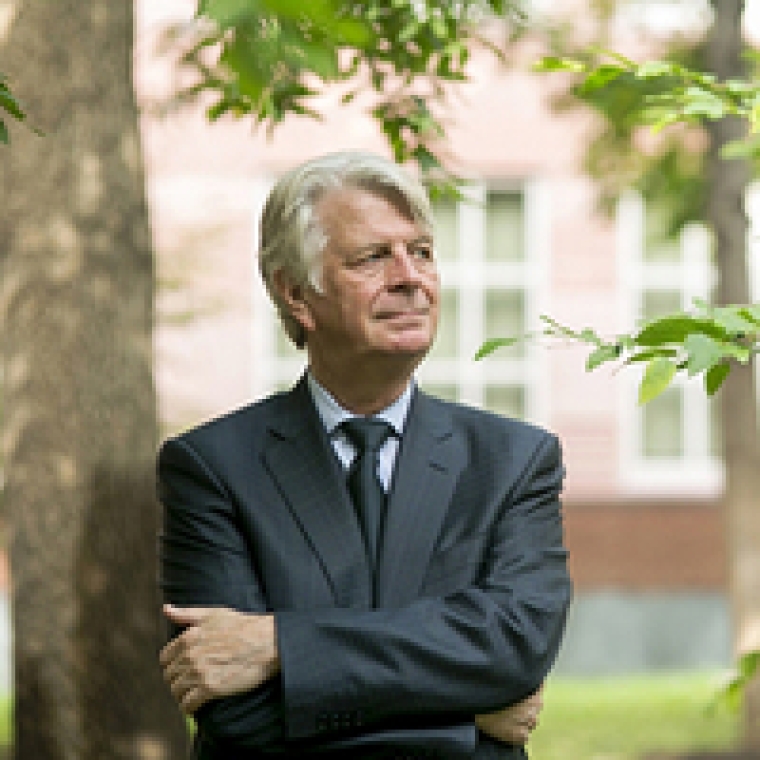 Frederick Steiner
Frederick Steiner
Frederick Steiner is dean and Paley Professor at the University of Pennsylvania School of Design, and co-director of The Ian L. McHarg Center for Urbanism and Ecology. He served for 15 years as dean of the School of Architecture and Henry M. Rockwell Chair in Architecture at The University of Texas at Austin, having taught at Arizona State University, Washington State University, the University of Colorado at Denver, and Tsinghua University. A fellow of both the American Society of Landscape Architects and the Council of Educators in Landscape Architecture, he has written, edited, or co-edited 18 books, including Making Plans: How to Engage with Landscape, Design, and the Urban Environment (UT Press, 2018).
For philanthropic foundations, development banks, and other international organizations, resilience has become a key goal of many of their programs and projects. Can design become a tool for more integrated approaches and more community involvement? What can mainstreaming design for resilience bring on a global scale?
Presentations by Nina Marie Lister (Ryerson University), Jurgen Bey (Studio Makkink Bey), Simon Richter (Penn School of Arts and Sciences) and Barry Beagen (Kota Kita), David Waggoner (Waggoner & Ball), Richard Weller (PennDesign)
Moderated by Matthijs Bouw (PennDesign)
 Barry Beagen
Barry Beagen
Barry is a designer and planner at the intersection of community development, urban infrastructure and climate change resilience in developing countries. As a program director at Kota Kita, Barry focuses on methodologies to mainstream urban participatory design and co-development processes. At MIT Urban Risk Lab, Barry has collaborated on design research related to urban resilience and disaster emergency response systems in Indonesia, Haiti and India. He had received the Tata Center for Design and Technology Fellowship developing models for co-operative based incremental housing in India and was a co-founder of Cornell University Sustainable Design. Barry had previously taught at Columbia Graduate School of Architecture, Planning and Preservation and worked at Diller Scofidio + Renfro, New York on a number of cultural and public space projects including The Museum of Modern Art Expansion, Juilliard School in Tianjin, China, and Adelaide Contemporary.
 Jurgen Bey
Jurgen Bey
In 2002 design office Studio Makkink & Bey was founded by Rianne Makkink (1964) and Jurgen Bey (1965). In their eyes, urban planning, architecture and landscape architecture are inextricably connected to product design. The light bulb influenced architecture, the constructed house has formed the household interior and skyscrapers could never have existed without the elevator. In more than 300 projects, commissioned by museums, galleries, art or government organizations, companies and private commissioners, as well as in many lectures a design vision is delivered in which the form of a design follows from its context.
 Matthijs Bouw
Matthijs Bouw
Matthijs Bouw is associate professor of practice, Rockefeller Urban Resilience Fellow, and McHarg Center Fellow for Risk and Resilience at PennDesign. He is a Dutch architect and urbanist and founder of One Architecture (est. 1995), an award-winning Amsterdam and New York-based design and planning firm. Bouw’s work at Penn theorizes and positions design as an integrator and innovator among scales, disciplines, actors and issues in urban resilience and water management projects. He is a driving force between RBD U, a network of design schools that collaborate on resilience issues, and is developing the Chief Resilience Officer curriculum for 100 Resilient Cities. Additionally, he researches how to achieve and increase ‘resilience value’ in the implementation of complex projects.
 Nina-Marie Lister
Nina-Marie Lister
Nina-Marie Lister is graduate program director and associate professor in the School of Urban and Regional Planning at Ryerson University. A registered professional planner (MCIP, RPP) trained in ecology, environmental science and landscape planning, she is the founding principal of PLANDFORM, a creative studio practice exploring the relationship between landscape, ecology, and urbanism. At Ryerson University, Lister founded and directs the Ecological Design Lab, a collaborative innovation incubator for ecological design research and practice, and an experimental generator aimed at rapid prototyping for resilience. She is a member of the Ryerson Urban Water Centre where she contributes work on flood-friendly design and resilient water infrastructure.
 Simon Richter
Simon Richter
Simon Richter is the 1942 Endowed Term Professor of German at the University of Pennsylvania. As an environmental humanist, he is interested in cultural aspects of resilience and sustainability. Current research focuses on cultural responses to sea level rise and flooding in delta cities in the Netherlands, the US, and Indonesia, with an emphasis on Dutch approaches. Richter directs Penn in Berlin and Rotterdam, a hybrid online/study abroad program focused on comparative cultures of sustainability. Richter is a member of ONE Resilient Semarang. One Resilient won in the Water as Leverage urban design competition for Semarang, Indonesia, a rapidly subsiding coastal city in Northern Java.
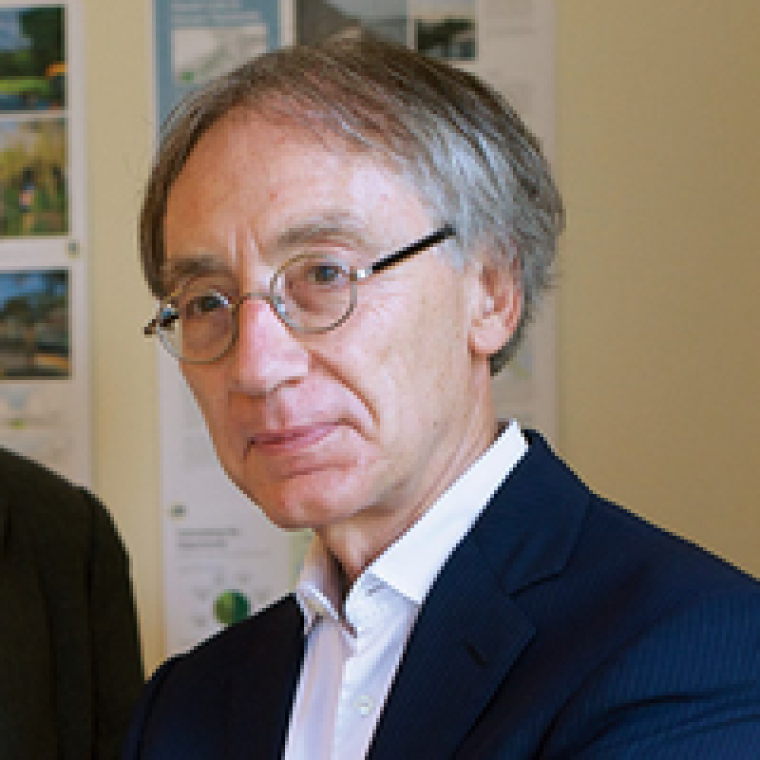 David Waggonner
David Waggonner
David Waggonner is the founding principal of Waggonner & Ball Architecture & Environment in New Orleans and a leader in the field of urban climate adaptation. In the aftermath of Hurricane Katrina, David saw an opportunity for New Orleans to reinvent itself as a sustainable city that embraces its lifeblood, water. He championed the Dutch Dialogues, a process that examines history, soils, biodiversity, infrastructure networks, and urban space, along with the forces of water. This holistic foundation for design grounded Waggonner & Ball’s Greater New Orleans Urban Water Plan and later Rebuild by Design. The firm’s current work includes watershed planning projects in Louisiana; urban design projects in Texas, Connecticut, Virginia, and Chennai, India; and building design projects in Beijing, China.
 Richard Weller
Richard Weller
Richard Weller is the Meyerson Chair of Urbanism, professor and chair of landscape architecture, co-executive director of The Ian L. McHarg Center for Urbanism and Ecology at the University of Pennsylvania, and former co-director of Room 4.1.3. In over 30 years of practice he has worked simultaneously as an academic and a consultant specializing in the formative stages of projects ranging from gardens to plazas, memorials, museums, suburbs and waterfronts. His research projects have involved scenario planning for cities, megaregions and nations and his work has been exhibited at the Museum of Contemporary Art, Sydney; the Gardner Museum, Boston; MAXXI Gallery, Rome; and the Canadian Design Museum.
Cities have become ground zero for building resilience, with often high ambitions, as well real struggles to implement. Can design be the oil and the glue in resilience projects and initiatives? Where do designers fail? What tools can it bring to the city and its communities?
Presentations by Magdalena Ayed (Harborkeepers Boston), Jeff Hebert (The Water Institute of the Gulf), Alyssa Conn Konon (NYC Parks), Howard Neukrug (The Water Center at Penn), and Marilyn Jordan Taylor (PennDesign).
Moderated by Candace Damon (PennDesign, HR&A Advisors)
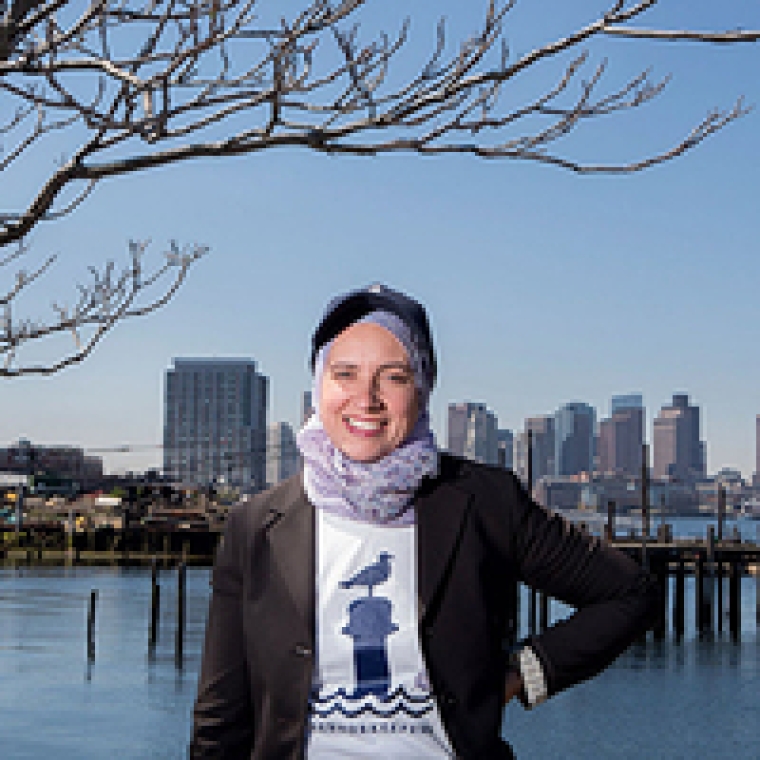 Magdalena Ayed
Magdalena Ayed
Magdalena Ayed is founder and director of The Harborkeepers, a start-up coastal resiliency and environmental advocacy organization in East Boston. Originally from Argentina, multi-lingual and with a degree in International Relations, Magdalena has acquired experience working in various sectors domestically and abroad such as in international social services, human rights advocacy and humanitarian aid, in public health and housing. In the past 8 years, however, has delved into environmental advocacy and organizing in the Boston area, experience which has given her insights into creative urban problem-solving techniques and innovative community engagement strategies. Magdalena's passion for the Boston Harbor and marine environment, local waterfront environmental issues, keen multi-cultural abilities and innovation in community engagement strategies has earned her support from the community as well as from partners and colleague across the board, support she leverages to advance city and state planning process that she hopes will have a lasting impact in creating coastal resiliency and improving the communities in which she lives and works. She is also the film director of a documentary film called Destination East Boston that tells the story of 50 years of airport expansion and its impacts in East Boston.
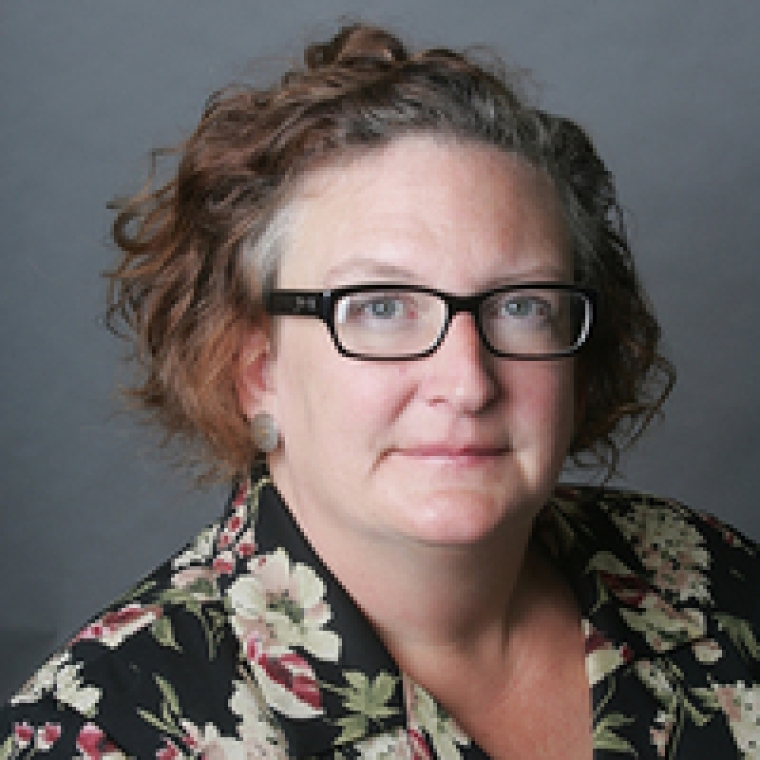 Candace Damon
Candace Damon
Candace Damon has devoted her 30-year career to crafting sustainable urban redevelopment strategies for cities across North America. Her specific areas of expertise include supporting master planning efforts for large-scale revitalizations, ensuring the long-term viability of urban open space, leading organizational planning for non-profits and institutions, and addressing the financial challenges of making commercial and multifamily residential buildings energy efficient. Candace also specializes in engineering successful strategies for downtown and waterfront redevelopment across the country, including in Philadelphia, Boston, New York City, Minneapolis, Atlanta, Charlotte, San Diego, and Toronto.
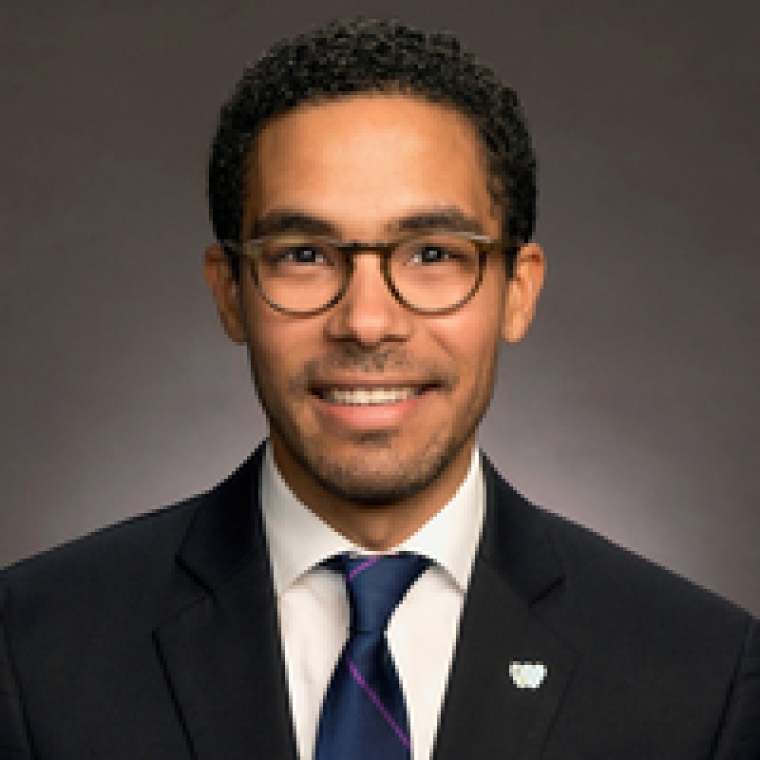 Jeff Hebert
Jeff Hebert
Jeff Hebert joined The Water Institute of the Gulf in January 2018 and serves as the Institute’s first Vice President for Adaptation and Resilience where he is leading the interdisciplinary work being done to help communities better adapt to changing environments. In addition, Hebert is an adjunct faculty member in the graduate sustainable development program at the Tulane School of Architecture.
 Alyssa Cobb Konon
Alyssa Cobb Konon
Alyssa is Deputy Commissioner, Planning and Development, at NYC Parks. In this role, she has spearheaded the creation and implementation of significant citywide equity initiatives including the Community Parks Initiative, Parks Without Borders, Anchor Parks, and Walk-to-a-Park. She is responsible for Parks' real estate portfolio, including acquisitions, and directs approximately 400 park concessions. She has expanded Parks engagement on waterfront, marinas and coastal projects, and guides Parks’ role in climate change. Prior to Parks, Alyssa was an Executive Vice President at NYC Economic Development Corporation, where she directed the Planning, Development and Transportation Divisions. Alyssa received an undergraduate degree in Human Biology from Stanford University and a graduate degree in Urban Planning from Columbia University.
 Howard Neukrug, PE, BCEE, Hon. D.WRE
Howard Neukrug, PE, BCEE, Hon. D.WRE
Neukrug is University of Pennsylvania’s Professor of Professional Practice in Global Water Leadership and founding director of the Water Center at Penn. His 40 years in the water industry culminated as CEO of Philadelphia Water. He advises cities and water utilities in everything “water’. As founder of Philadelphia’s first Office of Watersheds, he created of its award winning Green Cities, Clean Waters program. He is a Professional Engineer, member of the US National Drinking Water Advisory Council, principal of CASE Environmental LLC, Senior Advisor to the Global Water Leaders Group and chairs the Leading Utilities of the World Network.
 Marilyn Jordan Taylor
Marilyn Jordan Taylor
Marilyn Jordan Taylor is Professor of Architecture and Urban Design. She had a distinguished tenure as Dean of the School of Design from 2008 - 2016, having previously been a much-admired architect, urban designer, and partner at SOM. She is recognized worldwide as a design thought leader as well as a woman pioneer in the fields of architecture, urbanism, and implementation. In response to Storm Sandy, she served as a team leader and advisor for Rebuild by Design and as an expert for the Rockefeller Foundation’s 100 Resilient Cities program. Taylor’s global stature is complemented by her down-to-earth demeanor and proven ability to interact easily with constituencies across communities, government, industry, and academia, both locally and internationally. She is a leader who exudes not only intellectual breadth, but also deep enthusiasm and compassion in her dedication to enhancing the vitality of communities and cities through design.
Cross-disciplinary and multi-scalar approaches are critical to building resilience. What are the collaborations the design school should develop in order to prepare for the 21st century challenges? Can ‘research by design’ complement other forms of research?
Presentations by Sam Carter (100 Resilient Cities), Jesse Keenan (Harvard GSD), Carolyn Kousky (Wharton School) and Billy Fleming (McHarg Center), Eric Klinenberg (NYU IPK), Allison Lassiter (PennDesign)
Moderated by Ellen Neises (PennPraxis)
 Samuel Carter
Samuel Carter
Samuel Carter is Director of the Resilience Accelerator at 100 Resilient Cities. In this role, he is leading a partnership with Columbia University’s Center for Resilient Cities and Landscapes to engage faculty and students in 100RC’s work. He is currently developing the accelerator to spot key moments in a project’s lifecycle where we can convene and connect expertise to create more funding and investment opportunities and produce better resilience outcomes.
 BIlly Fleming
BIlly Fleming
Billy Fleming (PhD’17) is research coordinator for the Ian L. McHarg Center at PennDesign. Most recently, he co-authored The Indivisible Guide—a progressive, grassroots organization with more than 6,000 groups—and co-created Data Refuge, an international consortium of scientists, librarians, and programmers working to preserve vital the environmental data at risk of erasure during the Trump Administration. Before coming to Penn, Fleming worked on urban policy development in the White House Domestic Policy Council during the Obama Administration. He is currently writing a book for the University of Pennsylvania Press entitled “Drowning America: The Nature and Politics of Adaptation along the American Coast” and co-editing an anthology for the Lincoln Institute for Land Policy entitled “Design With Nature Now” to mark the 50th anniversary of Ian McHarg’s canonical book, “Design With Nature.” His writing has been published in The Atlantic, The Guardian, Landscape Journal, and the Houston Chronicle.
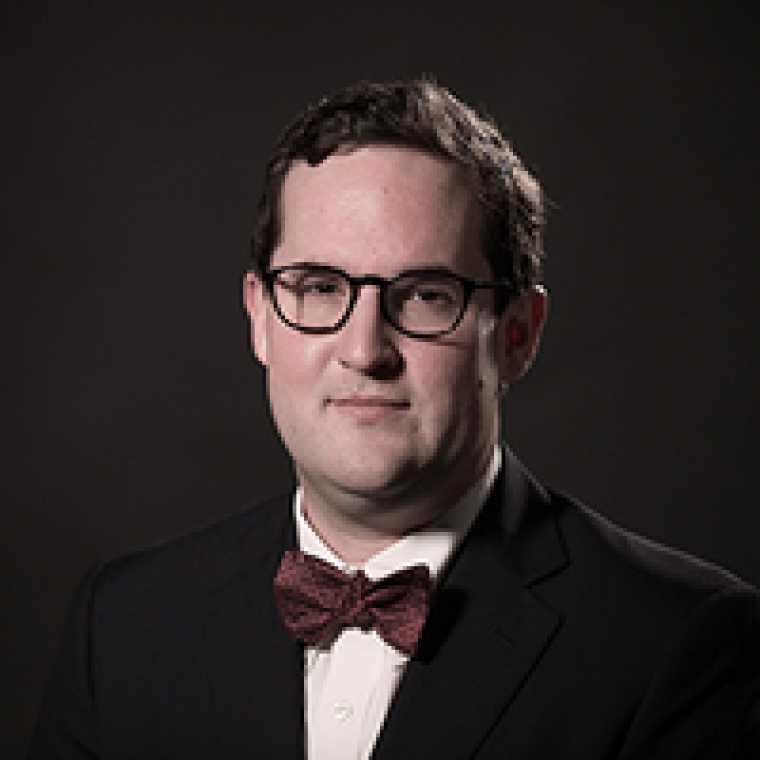 Jesse M. Keenan
Jesse M. Keenan
Jesse M. Keenan is a social scientist and a member of the faculty of the Graduate School of Design at Harvard University. Keenan’s principle research focus is on climate change adaptation and the built environment, including aspects of design, engineering, financing and planning. Keenan holds concurrent appointments as a member of the U.S. delegation to the IPCC, Research Advisor to California’s Governor and as a Visiting Scholar at the Federal Reserve Bank of San Francisco. Keenan’s research has partnered with a variety of global actors, including the AIA, Audi, Carnegie Corporation, EPA, Goldman Sachs, Google, ICC, Knight Foundation, MoMA, Mori Foundation, Lennar Foundation, NASA, National Security Council, National Institute of Standards and Technology, NSF, Open Society Foundation, Regional Plan Association, RAND Corporation, the White House and the U.N. Keenan’s books include Blue Dunes: Climate Change by Design (Columbia University Press), Climate Change Adaptation in North America: Experiences, Case Studies and Best Practices (Springer) and Climate Adaptation Finance and Investment in California (Routledge). Keenan holds degrees in the law (J.D., LL.M.) and science of the built environment (M.Sc.), including a Ph.D. from the Delft University of Technology.
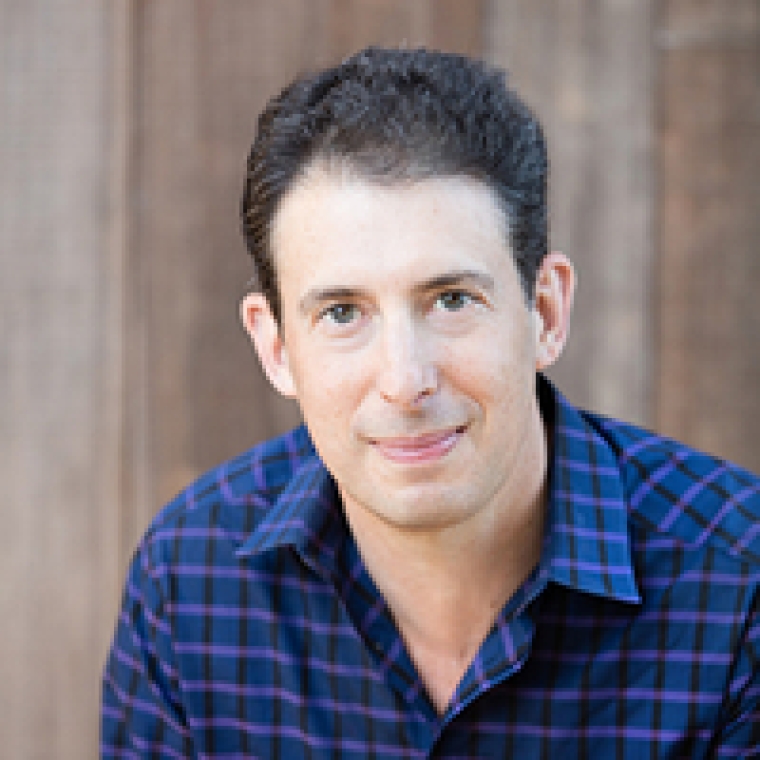 Eric Klinenberg
Eric Klinenberg
Eric Klinenberg is Professor of Sociology and Director of the Institute for Public Knowledge at New York University. Since 2013, he has served as the Research Director for the federal government’s Rebuild By Design Competition. Klinenberg is the author of several acclaimed books, including the New York Times #1 bestseller Modern Romance, co-written with Aziz Ansari, Going Solo: The Extraordinary Rise and Surprising Appeal of Living Alone, Fighting for Air: The Battle to Control America’s Media, and Heat Wave: A Social Autopsy of Disaster in Chicago. His most recent book is Palaces for the People: How Social Infrastructure Can Help Fight Inequality, Polarization, and the Decline of Civic Life. In addition to his scholarship, Klinenberg has contributed to the New Yorker, The New York Times Magazine, and This American Life.
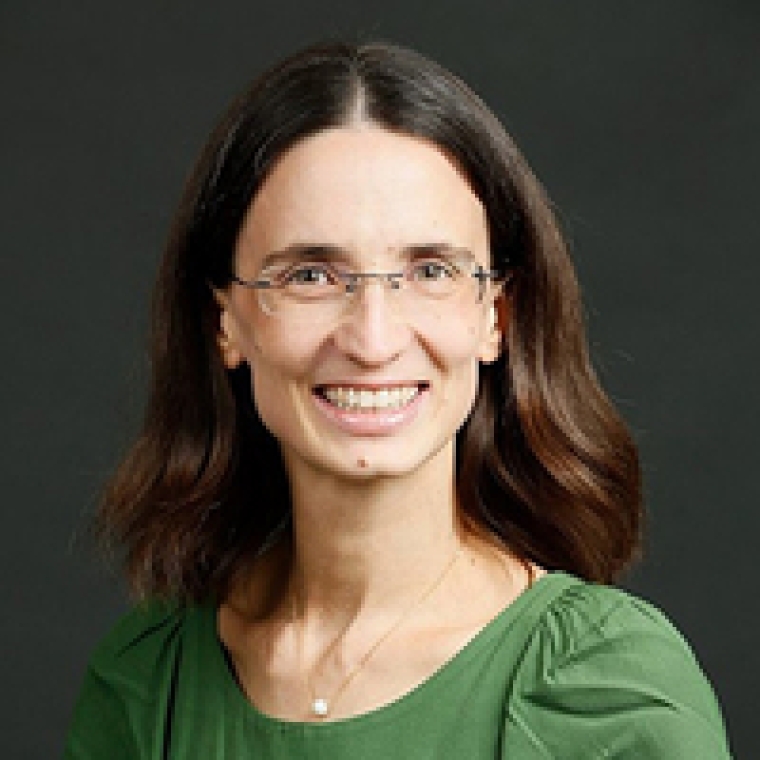 Carolyn Kousky
Carolyn Kousky
Carolyn Kousky is director of the Policy Incubator at the Wharton Risk Management and Decision Processes Center at the University of Pennsylvania. Kousky’s research has examined multiple aspects of disaster insurance markets, the National Flood Insurance Program, federal disaster aid, and policy responses to potential changes in extreme events with climate change. She has published numerous articles, reports, and book chapters on the economics and policy of natural disasters and disaster insurance markets, and is routinely cited in media outlets including NPR, The New York Times, The Washington Post, CBS News, and Business Insurance, among others. She is the recipient of the X International Julio Castelo Matrán Insurance Award from the Fundación MAPFRE on behalf of the Policy Incubator and the 2013 Tartufari International Prize from the Accademia Nazionale dei Lincei. Dr. Kousky was a member of the National Research Council Committee on Analysis of Costs and Benefits of Reforms to the National Flood Insurance Program and is a University Fellow at Resources for the Future. She has a BS in Earth Systems from Stanford University and a PhD in Public Policy from Harvard University.
 Allison Lassiter
Allison Lassiter
Allison Lassiter examines opportunities to use landscape infrastructure and technology to build resilience and increase adaptive capacity in cities. Her current research focuses on urban water management, including: identifying relationships between household water consumption and urban form; identifying relationships between weather and water use preferences; and valuing environmental services associated with decentralized stormwater management. Prior to joining the faculty at Penn, she was a postdoctoral fellow at Monash University in Melbourne, Australia, working with the Cooperative Research Centre for Water Sensitive Cities.
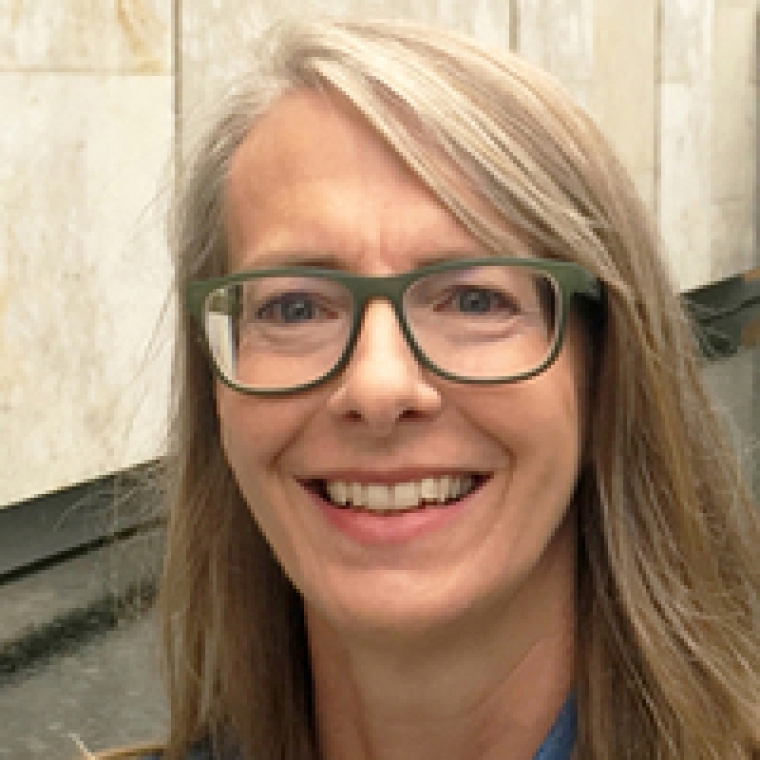 Ellen Neises
Ellen Neises
Ellen Neises is the executive director of PennPraxis and a founder of RANGE, a collaborative practice that works on large-scale and large-scope design and policy problems involving land, water and development. She teaches landscape design at the University of Pennsylvania. Ellen co-led the PennDesign / OLIN team’s work on Hunts Point Lifelines, a winning entry in the Rebuild by Design competition, and co-led the Port / RANGE team’s effort to increase regional resilience through new reciprocal exchanges between cities and the rural highlands in metropolitan New York as part of the Regional Plan Association’s Fourth Plan. Prior to Range and Penn, Ellen was an associate partner at James Corner Field Operations for 9 years, where she designed projects involving reclamation, development and infrastructure design.